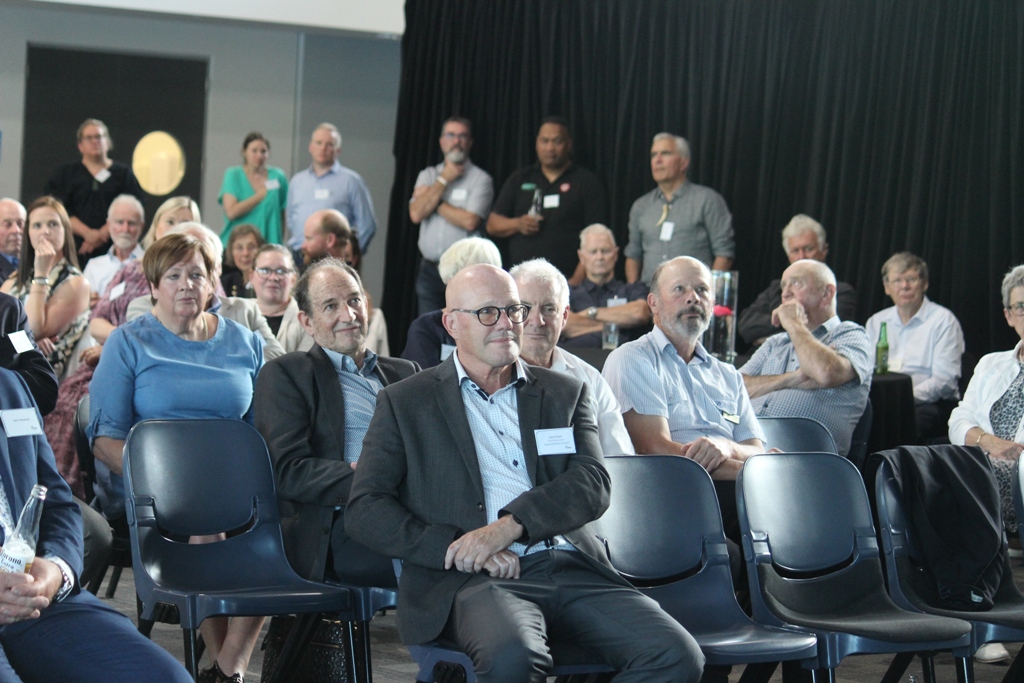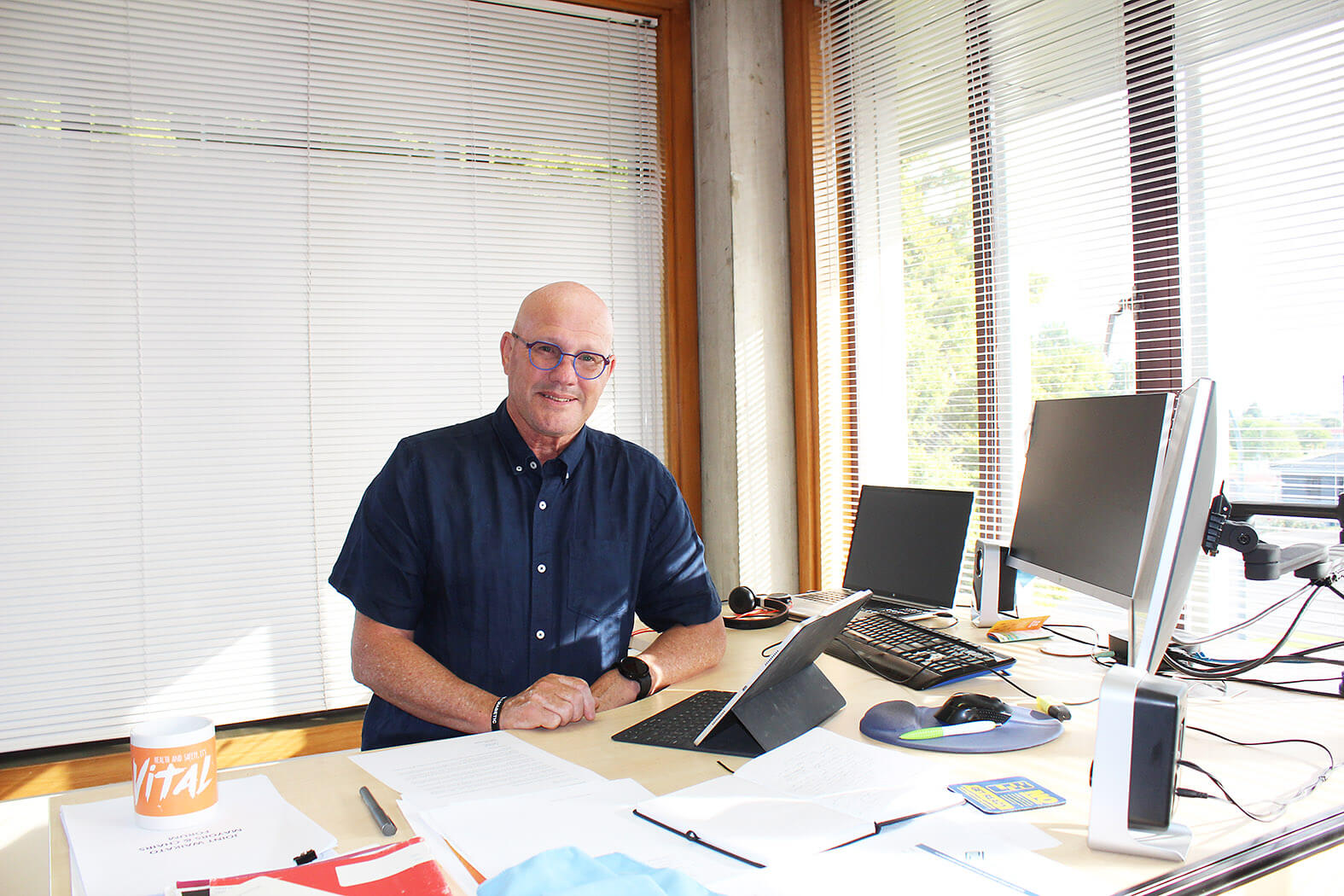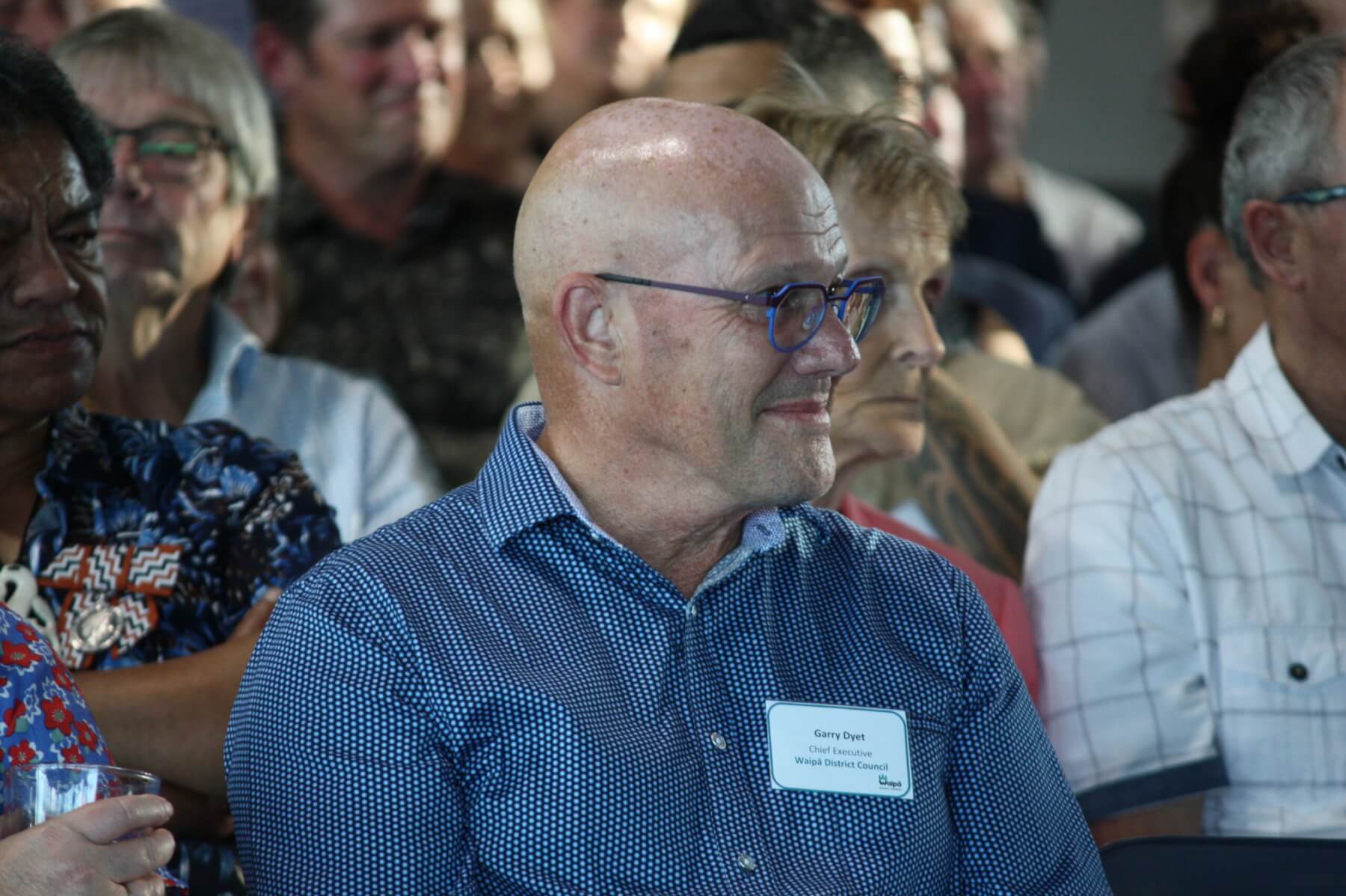Waipā District Council chief Garry Dyet will effectively be sprinting to the finish line when he finishes at the end of June.
The chief who started work as health inspector for Waipā County Council in 1980 – nine years before the formation of the district council – announced his departure date this week.
He has been planning the announcement since the middle of last year when he shared his plans with a select few, including me.
But having not had a day in 15 years where he hasn’t been bound in some way to work calls or emails, a change is due – ahead lies a decent holiday with wife Donna, and then further work in local government.
“I’m really interested in anchor institutions and managing risk – councils are big and complex businesses,” the father of two – and grandfather – says.
“You manage in three dimensions. There is the governance section, the staff section and then there is the issues ratepayers have. It’s a pretty pressured environment, so being able to work on future policy issues would dial back to a pace which is more sustainable.”
Dyet has been a highly active chief who has empowered his senior staff, but he grins at being told he has also maintained a low profile.
His inbox is constantly filling though, and he has no qualms when it comes to responding to criticism by picking up the phone. When he has had issues with stories in The News, it is almost always to come to the defence of the best leadership and executive team he says he has worked with.
Back to the sprint.

Susan O’Regan
Dyet, lauded at the Celebrating Waipā event by mayor Susan O’Regan for his service last week has unfinished business in the form of a hugely challenging long term plan – plus key performance indicators.
There will be no jogging to the finish line. He wants to leave the council in a place where his successor can hit the ground running.
“A big part of this year is about setting up the council for the future of local government – and though three waters is being repealed, they still have to plan for what life might look like – the status quo is not an option and councils will have to look at business cases for what a different entity will look like.
“Waipā has been a passion of mine for 45 years so fundamentally I need to leave it in a really good place.”
“We also want to land our first spatial plan, Ahu Ake which has been a really good process engaging with the community.’
Ahu Ake is council’s planning blueprint for the next 30 years.
“The other piece of work is setting Waipā up as an anchor institution.”
Anchor institutions – such as universities, hospitals and councils – invest in their communities as a way of doing business.
For the district council that would involve “taking steps to keep money local where, now, least-cost service delivery through a tender process often sees money go out of the district and in some cases offshore.
Dyet is a champion for the anchor model which he has studied overseas – Preston in England being cited as a good example.
It would involve partnering with anchor institutions in the wider district to district to deliver on community objectives identified through the spatial plan.
- Dyet found his first job at the council “soul destroying” but realised he loved planning – and the council enabled him to pick up a planning qualification and subsequently a master’s degree in public policy in the mid-1990s, “and I found myself in the second tier of the organisation”.
- He believes the 1989 decision to pair Te Awamutu and Cambridge was right, noting what the scale of what they have achieved together would have been beyond their means individually.
- He is a passionate supporter of seeing his hometown tell the story of the New Zealand Wars… “that part of the economic development puzzle, we have not yet delivered on – but having said that, Te Awamutu has continued to grow and it serves a massive catchment”.
- He is proud of the 2050 growth strategy and investment in its water infrastructure strategy, culminating in leasing the contract for the Cambridge treatment plant. He regards as “environmentally fantastic” the infrastructure work to install a sewage pipe from Waikeria through the growth area of Kihikihi and linking up with Te Awamutu.
- He lists a low light as governments – particularly the last one – making significant changes to local government “without having significant conversations with us”. He laments the fact that while his council provides 28 services from roads, parks, transport, liquor licences and animal control to museums and libraries “for about the same price of your power and gas bill” the council has not been able to convince people of the value they get for their rating dollar.
- When Dyet stands down, he will have recently qualified for his gold card. The Invercargill-born keen cyclist has no plans to leave Te Awamutu – home for him and wife Donna since Te Awamutu College school days.
- The interview finishes. He makes his only request. On top of lauding his staff he says, “I take my hat off to anyone who stands for public office – it’s increasingly difficult, especially in this era of social media and misinformation”.
See: Wheels turning on new cycleway
See: A plea to Pharmac

Garry and Donna Dyet on the Te Awa River Ride section below St Peter’s School in Cambridge. Photo: Mary Anne Gill.

Celebrating Waipa 2022 – chief executive Garry Dyet listens in as mayor Susan O’Regan thanks guests at the Celebrating Waipa event.











